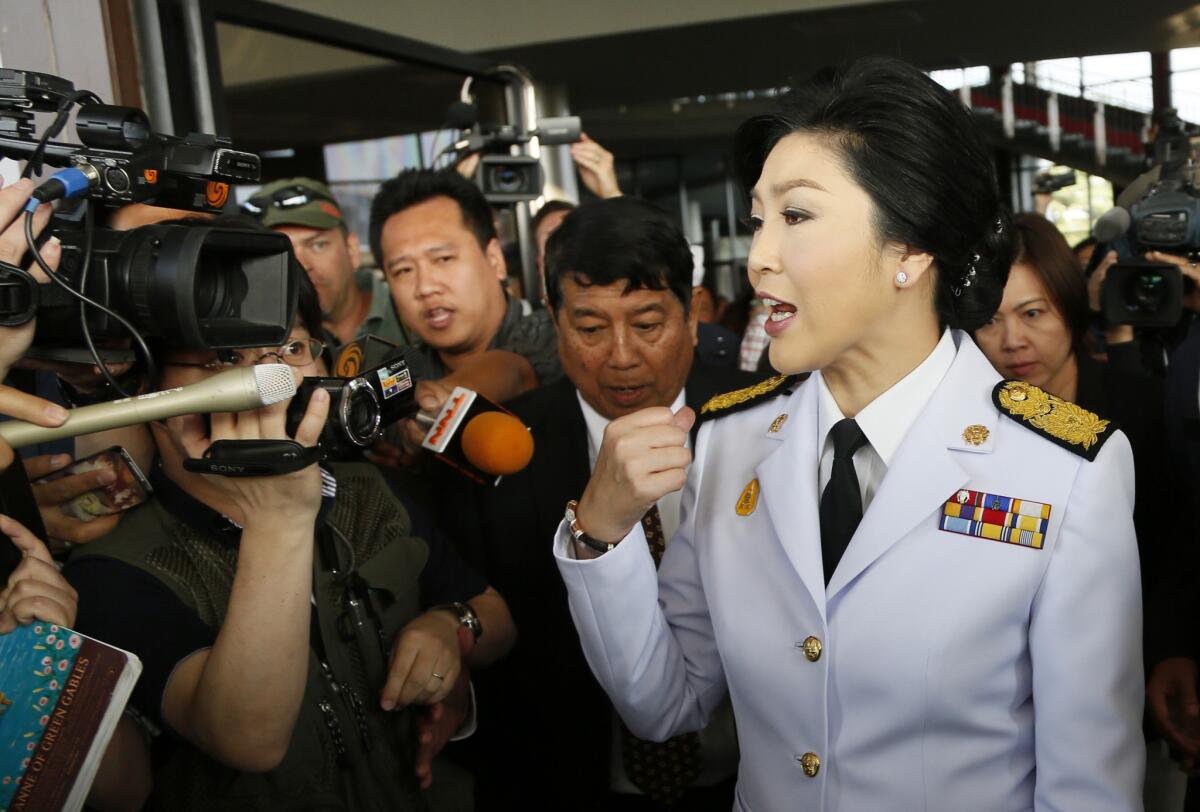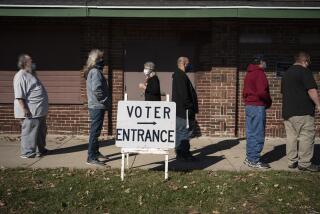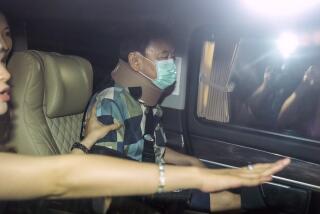Thailand to hold Feb. 2 election despite threat of violence

BANGKOK, Thailand -- Thai election officials said Tuesday that a controversial Feb. 2 vote would proceed as scheduled despite mounting pressure from anti-government protesters and threats of continuing violence.
Although election commissioners initially recommended that the vote be pushed back, embattled Prime Minister Yingluck Shinawatra called for it to go ahead as scheduled because she believes that it will strengthen her slipping grip on power.
While election commissioners held talks with Yingluck at a military facility on Tuesday, about 500 anti-government protesters gathered outside, advancing toward a police barricade. On the street nearby, one protester was shot in the leg.
Advance voting that began Sunday was marred by violence. Protesters surrounded and shut down 19 of 50 polling stations in Bangkok and more in the southern provinces.
A protest leader, Suthin Tharathin, was fatally shot near one polling station in Bangkok. Another protest leader threatened to block all polling stations in Bangkok on election day.
Yingluck, who has been leading a caretaker government, called the parliamentary election last December in hope of solidifying her power and calming protests. But the push for elections has only deepened Thailand’s eight-year political crisis and emboldened the protesters, who want to eliminate what they regard as the Shinawatra clan’s corrupt influence over national politics.
Deputy Prime Minister Surapong Tovichakchaikul told reporters before the meeting that the vote should go forward “because the majority of people want the election.” Government supporters said that advance voting in north and northeast Thailand went smoothly, and that anti-government protesters represent a minority of Thai voters.
Ten people have died in nearly three months of protests that have seen major intersections of Bangkok shut down. The government earlier this month declared a 60-day state of emergency as a “preemptive measure to prevent violence that could break out during the upcoming elections,” according to a government spokesperson.
Although Yingluck and her Pheu Thai party are widely popular in rural areas, the urban Bangkok elite see her as a puppet of her brother, ousted former Prime Minister Thaksin Shinawatra, a telecommunications mogul who many accuse of corruption and nepotism. An amnesty bill that would have allowed him to return to Thailand from exile in Dubai without facing charges was the catalyst for the most recent turmoil.
The protesters’ battle cry of “Shinawatras, out!” is framed as a stand against corruption, but beyond calling for a council of respected citizens to replace Thailand’s elected legislature, the anti-government movement has put forward few concrete reform proposals.
Over the weekend, the U.S. government called for an end to the violence, but avoided taking sides in the dispute.
“Preventing citizens from voting violates their universal rights and is inconsistent with democratic values,” said State Department spokeswoman Jen Psaki.
Paluch is a special correspondent. Staff writer Shashank Bengali contributed to this report from Mumbai, India.
More to Read
Start your day right
Sign up for Essential California for news, features and recommendations from the L.A. Times and beyond in your inbox six days a week.
You may occasionally receive promotional content from the Los Angeles Times.






